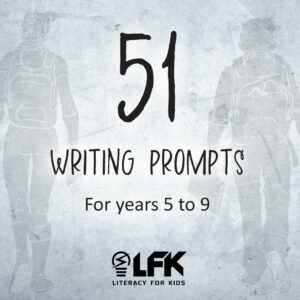Explaining Reading: Predicting

#1. Predicting
Predicting is fundamental to comprehension. Good readers anticipate meaning. They do this by predicting what they think is going to happen and by revising their predictions as they read.
Predicting is a skill for all ages – from emergent to high school readers
Emergent readers make predictions as they are listening to stories being read to them. More proficient readers make predictions when they are reading expository text. As a result, predicting can be taught to kids starting school and high schoolers, and it is appropriate in various genres of narrative text as well as various forms of expository text.
As with all comprehension strategies, predicting is based on the thoughtful use of prior knowledge. Readers may look at the pictures or the title or the headings to get an idea of what the topic is.
| This is why we feature short video clips in our program ~ aside from grabbing their interest, it provides students with topic clues to make predictions about the text. |
How Will You Know You Need to Teach Predicting?
The situation: Students keep on reading even when what they are saying no longer makes sense. When asked questions about what they just read, they are unsure.
* Conceptual Understandings That Must Be in Place *Students need to understand:
|
So, what is the “secret” to doing it?
Students must:
- Look for clues to the topic.
- Think about what they already know about the topic.
- On the basis of their prior knowledge, predict what they think will happen.
How do you know if your students are successful in this skill?
In follow-up reading, students will report that they made predictions and will state those predictions. When you ask them how they made their predictions, they should report the topic clues they were using and how they used their prior knowledge about each topic clue to figure out what might happen next.
Applying it to Writing
Remind students that when they write, they are authors. Authors provide topic clues the reader can use to make predictions about what is coming next. So, when they are writing, students should be conscious of the clues they are providing the reader.
Want your students to finish strong in their literacy? Want more from your literacy program? Contact us for a 30-day free trial in your school or classroom. New schools receive this terrific Teaching Resource: 51 Writing Prompts. These are a complete hit with our schools and you will not be disappointed with these image-rich, kid-centred Writing Prompts that will enthuse your writers.




Check out our blogs for more ideas and tips.
7 Parent friendly tips for comprehension
Get boys reading in the digital age
What to do when your son hates reading – 6 top tips
Brought to you by Tanya Grambower
